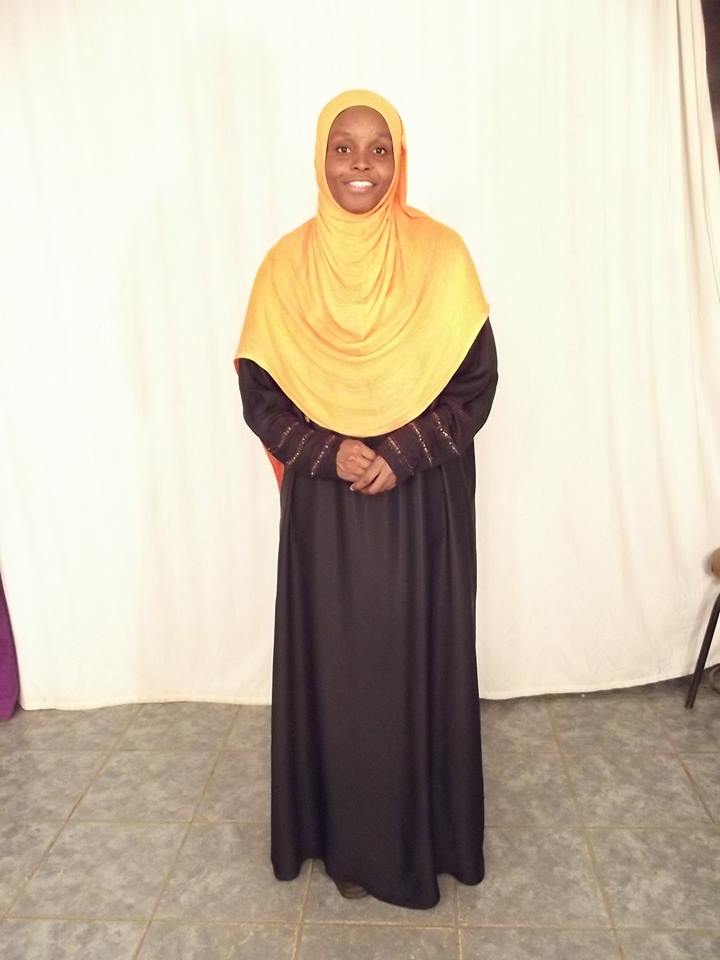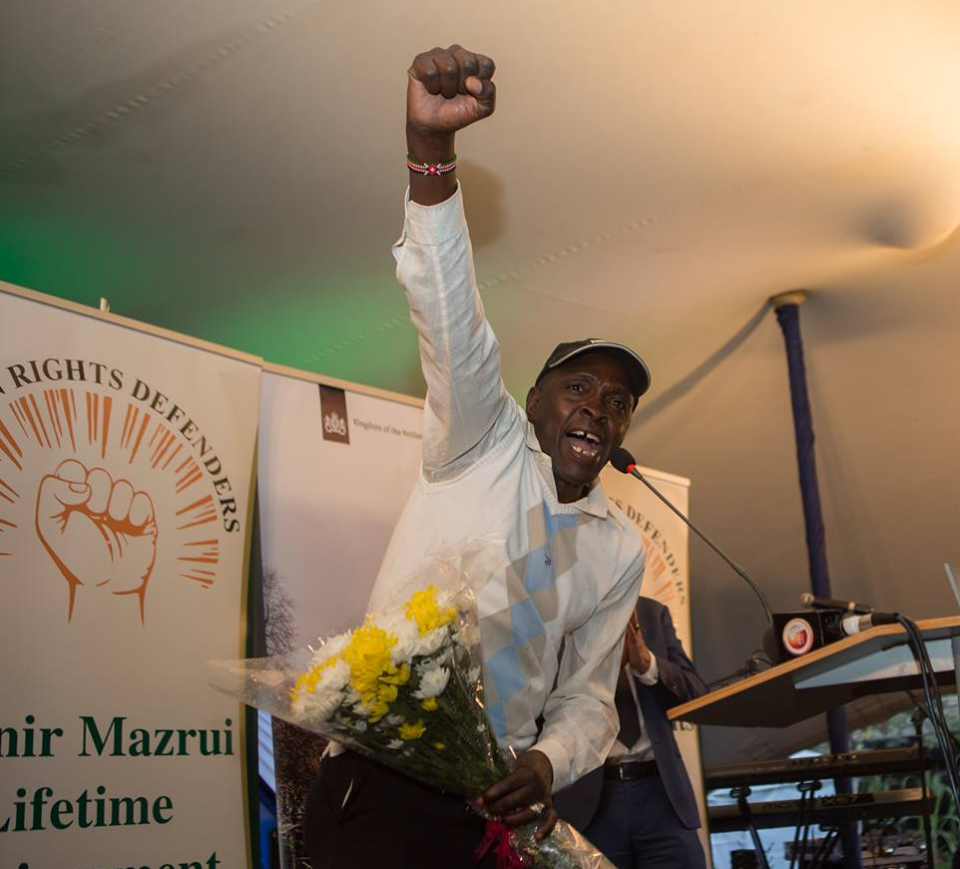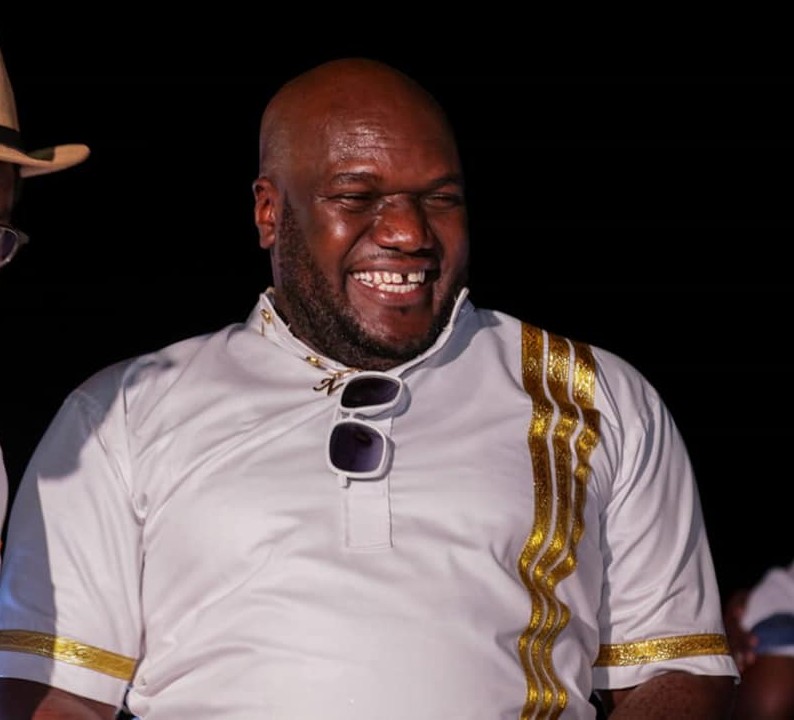 Lutfa Ali is a human right defender who specializes in advocating for children’s right and is a Volunteer Children Officer working under department of Machakos County children office. She started advocating for human rights when she was in a youth group they had formed in Machakos constituency. Its main areas of focus were advocating for youth inclusivity, environment protection, and promotion of education and lobbying on behalf of the community.
Lutfa Ali is a human right defender who specializes in advocating for children’s right and is a Volunteer Children Officer working under department of Machakos County children office. She started advocating for human rights when she was in a youth group they had formed in Machakos constituency. Its main areas of focus were advocating for youth inclusivity, environment protection, and promotion of education and lobbying on behalf of the community.
In early 2017, she established Akili Kids Organization, a the thematic area of focus is lobbying and advocating on behalf of the community on child rights and protection. Their success and inspiration comes from the number of chil- dren whose rights they are able to safeguard and empower through the use of performing arts to inform, educate and communicate on children’s rights and where to seek redress for violations.
In the course of her human rights work and establishment of an organization, she was faced with many challenges including, capacity gaps, financial constraints and lack of community confidence in the organization due to its infancy. However, she has managed to overcome these challenges by working in close partnership with the County Children’s Office.
Her passion and resolve for working with the community and children makes her unstoppable. She is motivated by the fear of being average.
Joan’s journey as a human rights defender began in 2012 at the age of 20 while she was a first year student in medical school. A friend approached her with the idea to establish an organisation, which they did. The organisation known as Fly Sister Fly Foundation champions the realisation of the right to education for girls in Samburu by addressing the basic barriers they face.
She and her colleagues identified their key challenges and developed creative ways to address the same. A notable achievement is the incorporation of adaptable technology through the use of Solar powered radio Project to counter the communication barrier and nomadic lifestyle of the Samburu Community. The initiative aims at distributing solar powered radio sets to the families in Samburu. The radio has a memory card slot where they insert a memory card with recordings of key issues such as importance of education. It also has a torch which the children use to study at night, acts like a power bank and has a charging system for phones. In 2016, they distributed 90 radios, impacting over 400 families since they use them
communally.
Joan has faced numerous challenges, which she views as an opportunity for growth and creative thinking to come up with solutions. One of her major challenges is lack of sufficient finances to sustain the work of the organisation which she tries to mitigate through innovative ways as crowd-funding and selling merchandise.

Dr. Wala is a mother and a medical doctor with a passion to defend justice. Her most recent fight for human rights was inspired by the operating environment for doctors in Kenya and the subsequent doctors’ strike in 2016. During this period, she actively campaigned for better working environment for doctors and the release of the union leaders who had been arrested. During the 2017 Elections, she started an online conversation dubbed: #NotOnMyWatch which provided a safe platform for people to share ongoing violations. She also formed a small group of 5 female doctors who partnered with KNCHR to document cases of Human Rights Violations in the Nairobi and Kisumu slums.
This platform later on went on train medical doctors on forensic documentation and is currently securing funding to take the doctors through psychological counselling on vicarious trauma. Some of the challenges she has undergone is the looming discomfort that her human rights work poses to her family who fear for her physical wellbeing.
Being in full time employment also means that she has to delicately balance her public image on human rights so as not to be seen to be representing the views of her employer. In addition, lack of resources forces her to use her personal resources to carry out her initiatives. Despite the challenges, she actively and successfully countered negative narrative against doctor’s strike and led a gallant campaign championing for the release of the Doctors Union leaders who had been arrested. The work she did during the electioneering period contributed greatly to the KNCHR elections report. Through this she has established critical linkages with forensic officers in most hospitals who document cases of human rights violations.

Kennedy, also known as JJ, is a member of Mathare Social Justice Centre (MSJC) where he works as the field coordinator and community mobilizer. Inspired by an oppressive past that saw him arrested at the age of 17 and sentenced to death for robbery with violence, a decision that was overturned eight year later on appeal. JJ started his human rights work in 2004, at Kiamaiko, in Nairobi County, addressing cases of Gender Based Violence and early marriages.
His area of focus is children’s rights and is a voluntary children officer at Starehe Constituency. JJ works to save destitute kids by getting them involved in art, drama and poetry to help them rise the different levels of life. After joining MSJC in 2016, Extra Judicial Execution cases were on the rise and he embarked on doing documentation of the same as well as Human rights abuses in Mathare and its environs.
His most outstanding achievement is managing to overcome his tainted past and use his experience to engage with the youth in his areas of operation to ensure that they live a life free of crime and instead involve themselves in income generating activities. He also initiated a program, mazungumzo mtaani (Community Conversations), which are dialogue sessions where the public is sensitized on the role of HRDs to gain community support for HRDs. He is also involved in Rapid disaster response team in Mathare.
He has been faced with numerous challenges including being arrested five times for his advocacy work. However, he has never been charged. He has also received threats from families of girls he has rescued who use the police the police to intimidate him. To overcome these challenges, he works closely with relevant state and non state partners to assist him in responding to cases.
“Killing young Kenyans is not the best way to control crime, involve them in income generating activities and crime rate will reduce,” Kennedy Chindi

Daniel is a self-driven individual who has a strong passion in realizing a sustainable society through offering his skills and expertise to give solutions to the current evolving community problems. He draws his motivation from the plight of the sexual and gender marginalized persons in our society who are living in absolute rejection due to their sexual orientation and gender identity, which the greater community does not understand.
He is a clinician and qualified researcher currently serving as the executive director and the founder of Nyanza Rift Valley Western Kenya LGBTI Network (NYARWEK) that advocates for the rights of the LGBTI persons in Western Kenya which was formed in 2009. One of his notable achievements include an initiative to engage with religious and cultural leaders in Western Kenya. This was based on his clear understanding that real change in attitudes around sexual and gender minorities must include the faith communities who positioned as important opinion leaders for our communities.
Being a member of the Global Interfaith Network (GIN) he managed to have constructive engagement with religious leaders which has resulted into development of a religious training curriculum. This first ever faith/LGBTI curriculum has been adopted by NASCOP as a best practice document and they plan to scale it up across the country.
In his human rights work he has faced numerous challenges including Social exclusion because of defending the rights off the LGBT hence people fear identifying with him at personal level which also proves to be a personal security risk. He has managed to address the challenges by having personal mentors who provide advice during the hard times. Being a member of the NCHRD-K has also helped him to address some of the security risks that I have encountered over the period.”
Daniel believes, “Ambition, An overmastering desire to be vilified by enemies while living and made it ridiculous by friends
when dead, A person without ambition is like a beautiful worm—it can creep; but not fly”
Elias Kimaiyo Kibiwot is a human rights defenders from the Sengwer an indigenous hunter and gatherer community. The community has endured conflict with the government since the colonial era. Inspired by the perpetual forced evictions and human rights violations of the community, Elias joined community leaders who were advocating for the rights of Sengwer community on land ownership. He is dedicated to serving his people towards overcoming all inhuman injustices to enable them to pursue their land ownership rights.
Through his work of documenting the human rights violations in the Embobut forest and sharing with local and international media houses, this has placed the Sengwer community at the forefront. He has used his documentation to reach out to international bodies to assist in publicizing the ongoing violations against the Sengwer community.
Through his efforts AVAAZ international collected over 960,000 signatures to petition Kenya Govt. This led to UNHCR to write to Kenyan government to stop all Human Rights violations that were ongoing. He has also been actively involved in following up on cases of members of the community arrested and as a contact person between the community and CSOs. In addition, he worked closely with the various stakeholders in developing a road map on historical land injustices and land ownership of indigenous
people. With others, they have written some letters to president Uhuru raising their grievances on the evictions without success or replies.
The greatest challenges Elias faces in his day to day human rights work is restricted movement from forest to various places, police harassment and intimidation when following up arrest cases. Elias is a victim of said arrest and assault that left him with serious injuries, following an encounter with Kenya Forest Services (KFS) officers. He is nursing the injuries to date. He was able to overcome his challenge through networking with other community members, engaging other human right organizations to come and offer
capacity building on indigenous and minority rights as enshrined in the constitution.


Essy is a human rights defender working to promote basic rights and fundamental freedoms. She has been part of social movements and have over ten years of experience working on human rights with a specific focus on lesbian, gay, bisexual and transgender individuals in Kenya. She is currently the founder and Executive Director of Initiative for Equality and Non Discrimination (INEND) that advances the human rights of sexual and gender minorities.
Her advocacy journey with organizations started in Nairobi, Kenya in 2009, where she worked with Gay and Lesbian Coalition of Kenya and Persons Marginalized and Aggrieved (PEMA Kenya) from 2010 to 2016. She is also a 2014 fellow of the Human Rights Advocates Program at Columbia University. Esther also the 2017 Upinde Awards, Shujaa Category Nominee. Her experience in these organisations led to the conceptualization and formation of INEND to directly contribute to a safer environment by working with the documented perpetrators of violence towards creating an enabling environment for the sexual and gender minorities and bridging the gap between sexual and gender minorities and the society at large, by educating the public on the human rights of sexual and gender minorities.
As a Human Rights defender working on sexual minority rights in the Coastal Region of Kenya, which is Muslim dominated, advocacy for human rights of sexual and gender minorities was one of the greatest challenges faced by Essy. She however managed to work with religious leaders and establish a network of religious leaders who continue to work with sexual and gender minorities.
She has also been able to start dialogue with motorcycle taxi operators who have been known to inflict actual violence on sexual and gender minorities. Currently their leaders are being trained as trainers of trainers (TOT) to be the ones reaching out to their peers with human rights messages for sexual and gender minorities.
“There are no gay rights, there are only human Rights as we are all human beings not gay beings,” says Essy
20 Feb. 18
Nairobi, Kenya
The National Coalition of Human Rights Defenders-Kenya welcomes the news that human rights defender Aloys Habimana was released from the custody of the Service National de Renseignements (SNR – National Intelligence Services) in Burundi on Monday 19 February 2018.
Aloys was arrested on Saturday,17th February 2018 near the border of Burundi and the Democratic Republic of Congo. According to Front Line Defenders, he was detained by the Service National de Renseignements (SNR – National Intelligence Services) in Bujumbura for two days without access to counsel. This is contrary to regional and international human rights mechanisms that prohibit arbitrary arrest, right to freedom of movement, the right to liberty and security of person.
“Human rights defenders’ fraternity in the region was deeply concerned with the safety and wellbeing of Aloys while in custody considering that SNR has been responsible for numerous arrests, torture and ill-treatment of human rights defenders and political opponents in Burundi,’ said Kamau Ngugi, Executive Director of National Coalition for Human Rights Defenders-Kenya while welcoming the news of Aloys’ release from custody.
Aloys Habimana is a well known among human rights defenders in the Africa region because of his timely response to those at risk. Aloys is Front Line Defenders’ Protection Coordinator for East and Southern Africa, an Irish based human rights organization that supports and protects human rights defenders at risk around the world. Aloys has worked with Front Line Defenders since 2012
The National Coalition of Human Rights Defenders reminds East Africa states of their commitment to free movement of people across the region and call on authorities in Burundi to cease targeting of human rights defenders. Human Rights Defenders should be able to carry out their legitimate human rights activities without fear of reprisals and restrictions as decreed by the ‘UN Declaration on Human rights Defenders’, adopted by UN General Assembly Resolution A/RES/53/144 of 8 March 1998.
For further information contact:
Kamau Ngugi, Executive Director, National Coalition of Human Rights Defenders Kenya (NCHRD-K); info@hrdcoalition.org; Tel; +254712632390